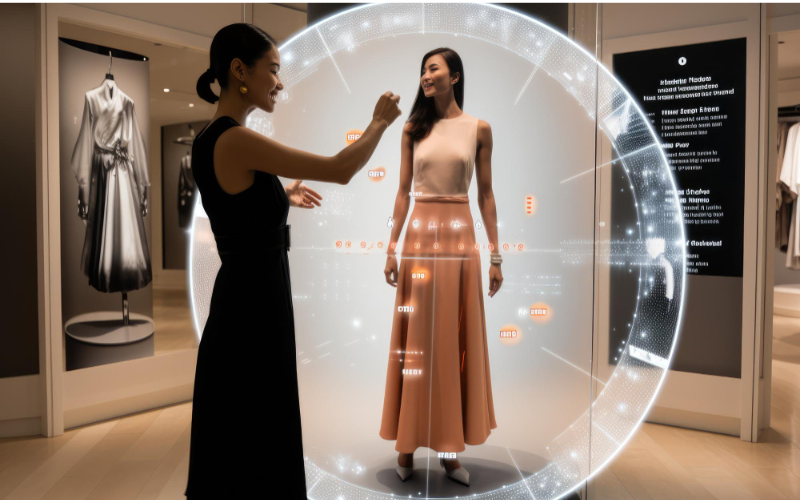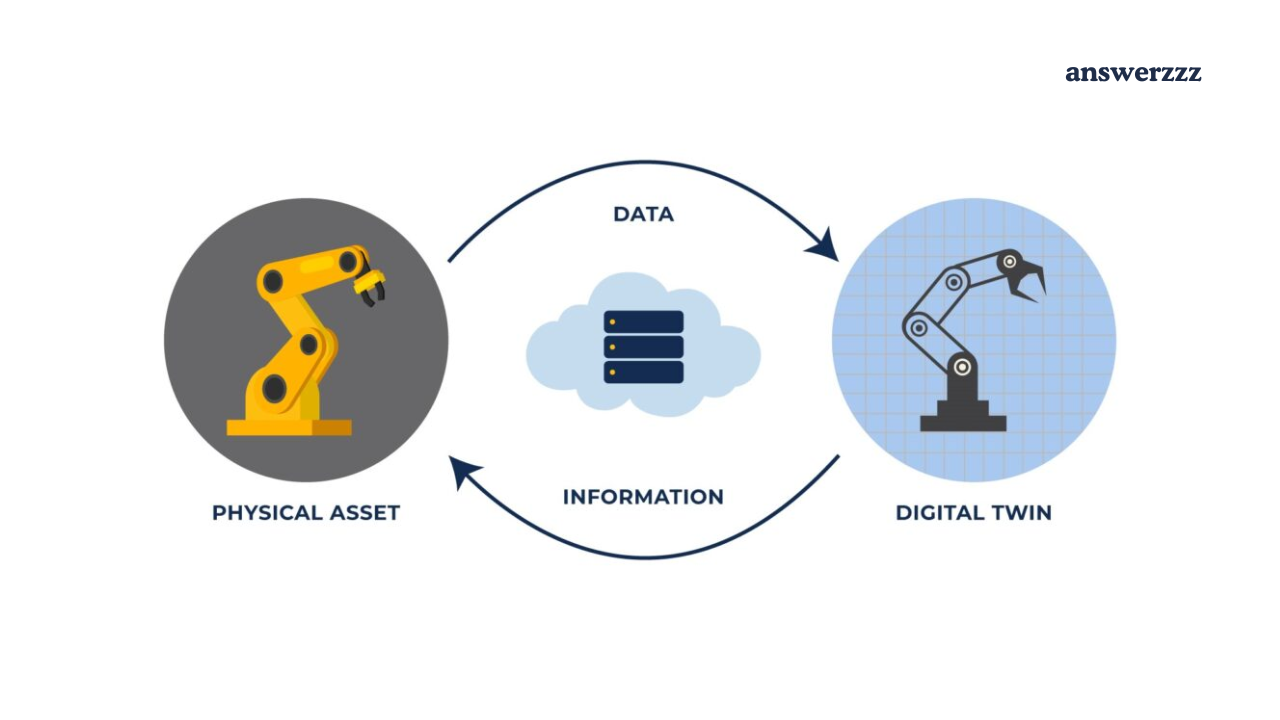The fashion industry, traditionally known for its creative flair and artistic expression, is undergoing a revolutionary transformation thanks to the rapid advancements in artificial intelligence (AI). This technology is not only reshaping how fashion brands operate but also how consumers interact with fashion. From design and production to marketing and retail, AI is making waves across every facet of the industry, streamlining processes, enhancing customer experiences, and even predicting trends. This article explores the various ways AI is influencing fashion, highlighting its applications, benefits, and the challenges it brings.
The Role of AI in Fashion Design

AI’s impact on fashion design is profound, enabling designers to harness data-driven insights to inform their creative decisions. AI tools can analyze vast amounts of data, including historical sales data, customer preferences, and social media trends, to predict what styles, colours, and fabrics are likely to be popular in upcoming seasons. For example, companies like Stitch Fix utilize AI algorithms to curate personalized clothing selections for customers, allowing designers to create pieces that align with consumer tastes and preferences.
Moreover, AI can assist in the actual design process. Programs powered by AI can generate designs based on existing patterns and styles, providing designers with fresh ideas and inspirations. These tools allow for quicker iterations and prototyping, significantly reducing the time it takes to bring a new collection to market. As a result, designers can focus more on creativity and innovation while letting AI handle the data-driven aspects of the design process.
AI in Supply Chain Management
The complexities of supply chain management in the fashion industry are immense, and AI is proving to be a game-changer in this area. By analyzing data from various sources, including inventory levels, production schedules, and market demand, AI can optimize supply chain operations. This optimization leads to reduced waste, lower costs, and improved efficiency.
For instance, AI can predict when specific items will run out of stock, enabling brands to reorder materials before they sell out. Additionally, AI-powered tools can analyze consumer buying patterns to forecast demand accurately, helping brands to produce only what is necessary, thereby minimizing overproduction—a significant issue in the fashion industry that contributes to environmental degradation.
Personalized Shopping Experiences
One of the most significant advantages AI brings to the fashion industry is its ability to create personalized shopping experiences. Today’s consumers expect tailored recommendations based on their tastes, and AI is rising to meet this demand. By leveraging machine learning algorithms, fashion retailers can analyze customer behaviour, preferences, and past purchases to recommend products that align with their style.
Virtual fitting rooms and augmented reality (AR) applications are also on the rise, allowing customers to try on clothes virtually before making a purchase. This not only enhances the shopping experience but also reduces return rates—a persistent challenge for online retailers. Companies like ASOS and Zara are implementing AI technologies that enable customers to visualize how different items will look on them, ultimately driving sales and customer satisfaction.
Trend Forecasting
Fashion is inherently dynamic, with trends constantly evolving. AI is revolutionizing the way brands forecast these trends, enabling them to stay ahead of the curve. By analyzing data from various sources, including fashion shows, social media, and consumer behaviour, AI can identify emerging trends more accurately than traditional methods.
Brands like WGSN use AI-driven analytics to provide insights into future fashion trends, helping designers and retailers align their offerings with what consumers want. This proactive approach not only enhances a brand’s competitiveness but also ensures that they are attuned to consumer desires, ultimately fostering loyalty and brand relevance.
Sustainable Practices

Sustainability has become a central focus in the fashion industry, and AI is playing a pivotal role in promoting eco-friendly practices. From material sourcing to production methods, AI helps brands make informed decisions that align with sustainability goals. For example, AI algorithms can analyze the environmental impact of different materials and production techniques, guiding brands towards more sustainable choices.
Moreover, AI can assist in recycling and upcycling initiatives. By analyzing consumer behaviour and waste patterns, AI can identify opportunities for repurposing materials or creating circular fashion models that minimize waste. Brands like H&M are leveraging AI to develop more sustainable collections, ensuring that they not only meet consumer demands but also address the pressing environmental concerns associated with fashion.
Marketing and Customer Engagement
AI is revolutionizing fashion marketing, providing brands with tools to engage customers more effectively. Chatbots and virtual assistants powered by AI can handle customer inquiries in real time, providing instant support and improving customer service. These tools not only enhance the customer experience but also free up human resources for more complex tasks.
Furthermore, AI enables brands to run targeted marketing campaigns by analyzing customer data to identify specific segments. By understanding consumer preferences and behaviours, brands can tailor their marketing messages and promotions to resonate with their audience. This personalized approach increases engagement and drives conversion rates, leading to higher sales and customer loyalty.
Challenges and Considerations
While AI offers numerous benefits to the fashion industry, it is not without its challenges. One significant concern is the ethical implications of using AI in fashion, particularly regarding data privacy. As brands collect and analyze customer data to enhance their offerings, they must ensure that they are doing so transparently and responsibly. Consumer trust is paramount, and brands must prioritize data protection and ethical practices to maintain that trust.
Additionally, the integration of AI into traditional fashion practices may face resistance from those who value craftsmanship and the human touch in design. Balancing technological innovation with artistic expression will be crucial for the industry’s future. Fashion is, at its core, about creativity and storytelling, and brands must find a way to incorporate AI without compromising their identity and values.
The Future of AI in Fashion
As AI technology continues to evolve, its impact on the fashion industry is expected to grow. The potential applications are vast, from improving supply chain transparency to enhancing customer experiences. Innovations such as AI-generated fashion shows and fully automated production lines could become commonplace, fundamentally altering how fashion is created and consumed.
Moreover, the integration of AI with other emerging technologies, such as blockchain and the Internet of Things (IoT), could lead to even more significant advancements in the industry. Blockchain can enhance supply chain transparency and traceability, while IoT devices can provide real-time data on inventory and consumer behaviour. Together, these technologies can create a more efficient, sustainable, and customer-centric fashion landscape.

AI is undoubtedly reshaping the fashion industry, driving innovation, efficiency, and sustainability. From design and production to marketing and customer engagement, AI is transforming how brands operate and interact with consumers. While challenges remain, the benefits of integrating AI into fashion are substantial, paving the way for a more dynamic and responsive industry. As technology continues to advance, the future of fashion looks bright, with AI at the forefront of this exciting evolution.
By embracing AI, the fashion industry can not only thrive in an increasingly competitive market but also meet the demands of a more conscious and informed consumer base. The key lies in finding the right balance between technology and creativity, ensuring that the essence of fashion—its ability to inspire and connect—remains intact.



